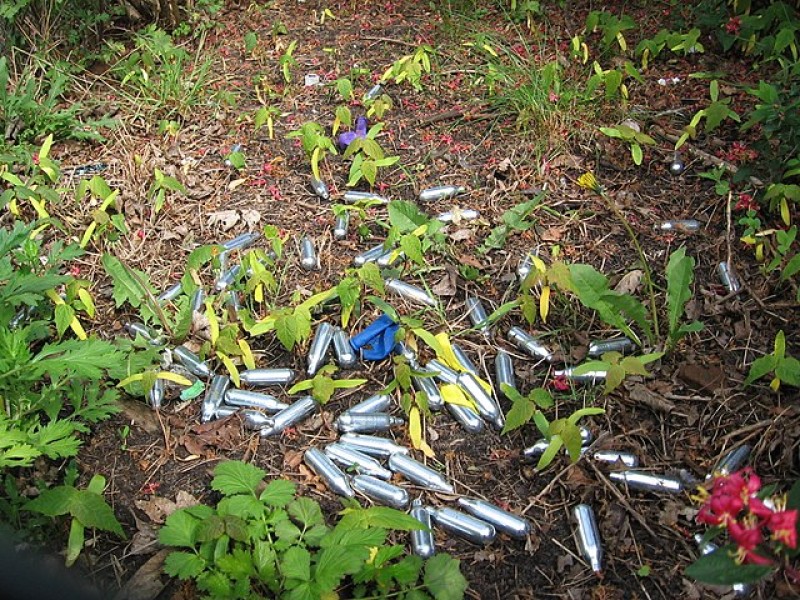Nitrous oxide is used in veterinary and medical procedures but also to make whipped cream. However, it is also a highly popular recreational drug among young people aged 16 to 24 in England, ranking as the third most commonly used substance, as reported by the U.K. Government.
The gas is usually inhaled using another object such as a balloon. It causes feelings of euphoria, relaxation and calmness but also fits of giggles which is how it got the nickname ‘laughing gas.’ But it also can cause less amusing symptoms like hallucinations, temporary paranoia, even nerve damage or paralysis.
As part of the Anti-Social Behavior Action Plan, the U.K. Home Secretary has called on the police to crack down on open drug use in public areas. To support this approach, a new law was introduced on September 5th, classifying nitrous oxide as a Class C substance under the Misuse of Drugs Act 1971.
These changes will come into effect by the end of this year.
According to a report released by the European Monitoring Centre for Drugs and Drug Addiction (EMCDDA), now the gas is very easy to access. It can be bought in supermarkets, night shops, kiosks and online.
“The British people are fed up with yobs abusing drugs in public spaces and leaving behind a disgraceful mess for others to clean up,” said Home Secretary Suella Braverman.
“Earlier this year the Prime Minister and I promised a zero-tolerance approach to antisocial behavior and that is what we are delivering. If you are caught using ‘laughing gas’ as a drug, you could be hit with a hefty fine or face jail time,” she added.
EMCDDA’s data collected from 1978 to 2022 shown in the report revealed that during the Covid-19 pandemic, there has been a increase in the frequency of nitrous oxide use among some individuals in their own homes.
Despite the lockdown measures, home delivery services seemed to have played a significant role in sustaining or even intensifying nitrous oxide use in certain cases, explained EMCDDA.
Additionally, The Office for National Statistics has registered 716 deaths between 2001 and 2020 connected to volatile substances used in England and Wales.
“Nitrous oxide was the third most mentioned substance on the death certificate after butane and propane, with 56 deaths registered between 2001 and 2020”.



